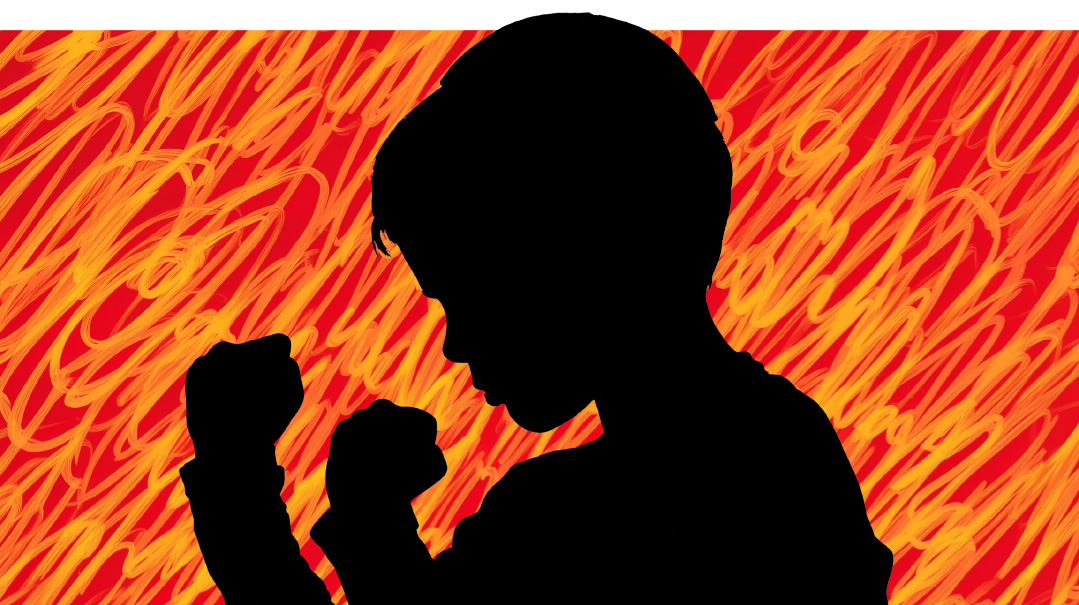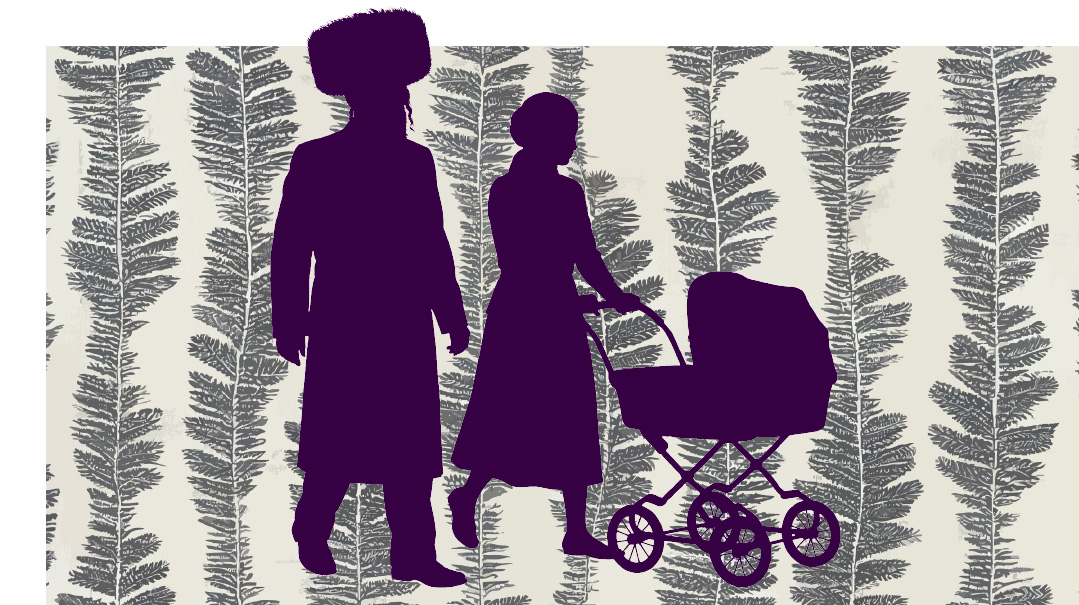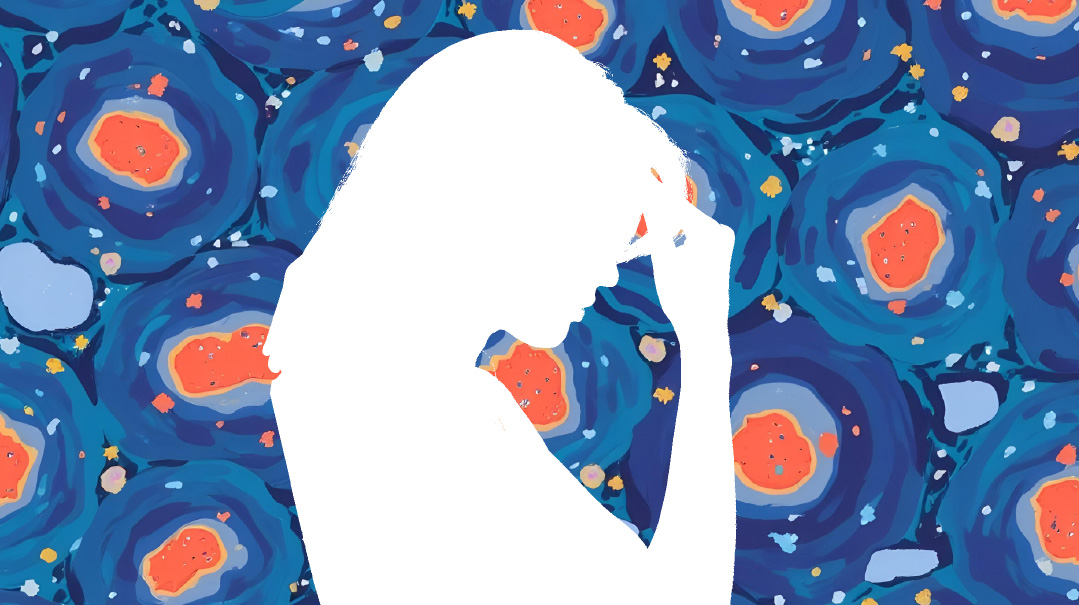Cerebral Palsy
| October 18, 2022I had clear motor damage and was diagnosed with cerebral palsy. The doctors told my parents I'd probably never walk

During those miraculous moments when a new baby’s lungs open and the baby has to begin breathing on her own, complications set in.
No one knew the ramifications of those moments when I was deprived of oxygen… until I started crawling very late and dragging my foot behind me. I had clear motor damage and was diagnosed with cerebral palsy. The doctors told my parents I'd probably never walk.
My incredible parents refused to accept this. They hired the best occupational, speech, and physical therapists they could find to help me learn to stand on my shaky legs, articulate the best I could, and write with an unsteady hand. Only due to Hashem’s will and my parents' hishtadlus did I come so far.
However, I was still shaky. My voice tone would go high to low in the middle of a sentence. I couldn’t properly articulate certain sounds. I could walk, but would lose my balance easily. I could write, but a lot of what I wrote was illegible. Over time, I kept improving in all those areas — but still there was a lot of irreparable damage.
Navigating the Social Maze
During my early years of schooling, I had intensive therapy. This, more than anything else, really defined my preschool years. Social relationships were very tough throughout my school years, especially during those early years when we learn key social skills.
Where do I stand in proximity to my friend? When do I pause in the middle of a conversation and wait for the other person to speak? How do I know when the conversation has ended and it’s time to move on? My inability to speak properly and my clumsiness kept peers at bay.
My parents always kept my schools and summer camps up to date about my challenges. Every school I attended and all of the teachers I had were fully attentive to my needs. It was challenging, of course, to succeed in school when I had speech and handwriting difficulties, along with my social struggles, but I always had my cheerleaders: my family, therapists, and teachers who encouraged me to be the best I could be.
As I entered my later elementary school and early middle school years, my intensive therapy stopped (although I had intermittent speech therapy) and a focus on social relationships took over. I had some psychological therapy to address social phobias. High school was tough (as it is for many). Girls are cliquey, and while I did okay one-on-one, group chitchat was impossible for me. If I made friends with one girl, I still had to deal with a group of others who might be harder to befriend.
After high school, I attended a traditional Bais Yaakov seminary. It was an incredible year! From a young age, davening and learning had been a big part of my life, and it was amazing to have a whole year to focus on my relationship with Hashem. I loved the learning, and the teachers with whom I formed relationships. Afterward, I attended a small community college where I got an accounting degree.
Moving Forward
When I finished school, I met and married a wonderful man, and moved to a city in the Midwest. We now have four wonderful children, baruch Hashem. Truthfully, I worried about what parenting would be like. Given my social problems, would I be able to connect with my children?
Baruch Hashem, we have deep, amazing relationships and they bring incomparable joy to my life. My one real challenge is discipline. They say to speak firmly but calmly when disciplining. How do you do that with a shaky voice? Unfortunately, I may start yelling instead, which really isn’t so effective.
A few years ago, we bought a house and settled down. The women in my neighborhood often keep to themselves. Everyone has something to keep them busy. Sometimes, though, the women sat around watching their kids and I’d try to join them. People would introduce themselves, but I’d just sit there awkwardly, unable to interject myself into the conversation. I finally figured that sitting outside was just not worth it.
Sometimes I’d make small talk with another woman and then someone else would come along and it was clear they knew all about each other’s lives. How did people form such relationships? I wondered.
At a local simchah, when I couldn’t find any neighbors, I just sat down at a table without realizing that the rest of the women at the table knew each other. While I might be able to make small talk with some neighbors, it was impossible for me to do so with a clique of women I didn’t know and who didn’t even think to acknowledge me.
See, the problem in all these situations was that I wasn’t disabled enough to arouse compassion, but I was disabled enough to look out of place and make people uncomfortable.
An Imperfect Ending
I wish I had a conclusion that went something like: Well, this is how I grew from this situation, or this is how life got better and I healed. But I don’t.
Sometimes I wish I were an introvert, but I’m not. I like being with people. As frum Jews, our lives revolve around community, and I wish I felt fully a part of that community.
Instead, here’s my conclusion: Think about what it’s like to live with social awkwardness and how you can make the world better for socially awkward people. No, you don’t have to be friends with everyone. Yes, you should have healthy boundaries and no one should ever make you super uncomfortable.
But we can all reach beyond our comfort level. We can make sure everyone is included in the neighborhood chitchat. If someone is sitting there uncomfortably, ask her for her opinion. Compliment her outfit. She might tell you a story about how she found this amazing sale and loved the dress right away, or she might give you a one-word answer, and you can smile and move on.
At PTA, schmooze with your friends — and then spend five minutes talking to someone who’s not your friend, who’s standing on the sidelines. You might form a deeper connection and make a new friend — or you might not. But let me assure you — you will definitely have made someone’s day.
You probably never realized that
Just as you don’t judge a book by its cover and you try not to judge a person by their appearance, you shouldn’t judge a person by other exteriors. Namely, by how they sound, and their initial presentation. Give them a second chance.
Please say
Hello! It’s so important to acknowledge everyone. Get to know people on the periphery of your social world.
I’ll never forget the time
when a woman, sensing that I felt lost, drew me into the conversation by explaining what the women were discussing.
The nicest thing anyone did for me
was when our first speech therapist, Chani, gave us an entire evaluation and helped us learn exposure therapy, all for free.
(Originally featured in Family First, Issue 814)
Oops! We could not locate your form.







